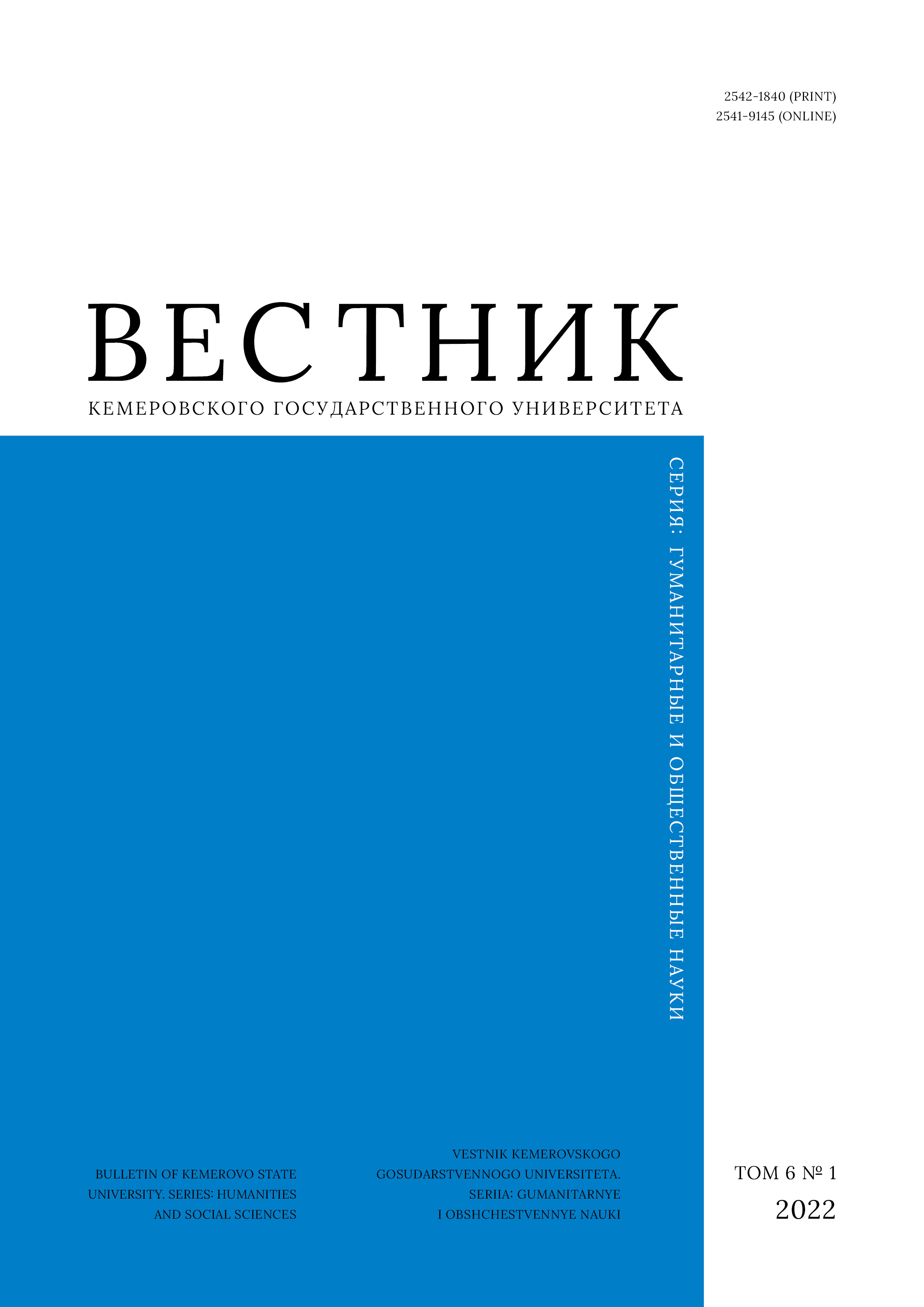Lugansk, Ukraine
UDC 378
Technosphere safety is a complex issue that depends directly on the level of professional competence of the people involved. The present research featured the problem-based method of teaching technogenic safety to Bachelor's Degree students. It involved a detailed analysis of the professionally-oriented training of technosphere safety bachelors. The analysis revealed some reasons behind the low efficiency of the current approach. The problem method is a promising resource for improving learning efficiency. The article introduces the content and application conditions of the problem method. The new approach was tested as part of lectures on Reliability of Technical Systems and Technogenic Risk. The problem method proved effective and improved the motivation of the future bachelors of technosphere safety.
problem-based learning, competency-based approach, cognitive activity, higher school, professionalism, Bachelor's Degree program, life safety
1. Remishevskii I. E., Velegurin V. A. Teaching specialists in life safety. Problems and Prospects of Development. Life Safety Issues in Education: Proc. I Sci.-Prac. Conf., Moscow, 20 Oct 2016. Moscow: VNII GOChS Emercom of Russia, 2016, 330-340. (In Russ.)
2. Sazonova Z. S., Fedyukina T. V. The concept of training on security technosphere bachelors of engineering and technology. Izvestiia Baltiiskoi gosudarstvennoi akademii rybopromyslovogo flota: psikhologo-pedagogicheskie nauki, 2014, (3): 37-46. (In Russ.)
3. Panasenkova E. Yu., Timofeev S. S. Competence-based approach for training students of the technosphere safety field (case study of the discipline "Regional ecology". XXI vek. Tekhnosfernaya bezopasnost, 2017, 2(3): 102-110. (In Russ.)
4. Karamushkina S. V. Problem method in teaching bachelors of Technosphere safety. Theoretical and practical aspects of engineering education: Proc. All-Russian Sci.-Method. Conf., Blagoveshchensk, 17 Dec 2018. Blagoveshchensk: Far Eastern State Agrarian University, 2018, 106-108. (In Russ.)
5. Grudzinskaya E. Yu., Mariko V. V. Active training methods in the university. Nizhny Novgorod: Lobachevsky State University of Nizhny Novgorod, 2007, 182. (In Russ.)
6. Selevko G. K. Modern educational technologies. Moscow: Narodnoe obrazovanie, 1998, 256. (In Russ.)
7. Lustgarten T. Yu. Formation of a technosphere security specialist. Vestnik Kostromskogo gosudarstvennogo universiteta. Seriia: Pedagogika. Psikhologiia. Sotsiokinetika, 2017, 23(4): 120-124. (In Russ.)
8. Akhmadieva R. Sh. Theoretical and methodological base for creating life safety on the roads as the competence of the future expert. Vestnik Chuvashskogo universiteta, 2011, (2): 243-250. (In Russ.)
9. Bosaia I. I. Technology of problem-based learning as a condition for training a competitive specialist. Personal development in theory and practice of psychology and pedagogy: Proc. Intern. Sci.-Prac. Conf., Chelyabinsk, 8 Apr 2019. Sterlitamak: AMI, 2019, 13-14. (In Russ.)
10. Selevko G. K. Problem-based learning. Shkolnye tekhnologii, 2006, (2): 61-65. (In Russ.)
11. Gorelikova O. N. Problem-based learning as an educational technology. Methods of teaching psychological disciplines at a modern university: Proc. Intern. Sci.-Method. Conf. of the teaching staff and graduate students, Belgorod, 5 Apr 2017. Belgorod: BUKEP, 2017, 81-88. (In Russ.)
12. Kudryavtsev V. T. Problem-based learning: origins, essence, prospects. Moscow: Znanie, 1991, 80. (In Russ.)
13. Matiushkin A. M. Problematic situations in thinking and learning. Moscow: Pedagogika, 1972, 208. (In Russ.)
14. Makhmutov M. I. Organization problem-based learning a school. Moscow: Prosveshchenie, 1977, 240. (In Russ.)
15. Makhmutov M. I. Problem-based learning: the main issues of theory. Moscow: Pedagogika, 1975, 368. (In Russ.)
16. Lerner I. Ia. Problem-based learning. Moscow: Znanie, 1974, 64. (In Russ.)
17. Korotkov S. G., Krylov D. A. Using problem-based learning as part of vocational training of bachelors. Vestnik of the Mari State University, 2017, 11(1): 13-17. (In Russ.)
18. Gorbunova N. N. Technology of problem-based learning as a factor in the development of cognitive activity of students in the context of the implementation of the Federal State Educational Standard. In the world of scientific discoveries: Prac. XV Intern. Sci.-Prac. Conf., Taganrog, 30 Mar 2015. Moscow: Sputnik+, 2015, 26-28. (In Russ.)
19. Manakova O. S., Butrimova N. V., Sidorov A. V. The advantages of problem-based learning in undergraduate training of engineers. Global scientific potencial, 2019, (6): 106-108. (In Russ.)
20. Skalkin V. L. Fundamentals of teaching oral foreign language speech. Moscow: Rus. iaz., 1981, 248. (In Russ.)
21. Karpov V. V., Kovalenko A. V. Reliability of technical systems and technogenic risk. Lugansk: Knita, 2020, 148. (In Russ.)
22. Vetlugina N. O., Fominykh M. V. Multimedia technologies in the context of problem modeling as a new approach to learning. Sovremennye problemy nauki i obrazovaniia, 2021, (4). (In Russ.) https://doi.org/10.17513/spno.31031
23. Tkachenko Yu. L., Morozov S. D., Gorbenko M. Yu., Litvinov N. N. Introducing project-based learning to develop professional competence of bachelor's degree students majoring in engineering safety. Society: Sociology, Psychology, Pedagogics, 2019, (5): 77-87. (In Russ.) https://doi.org/10.24158/spp.2019.5.16
24. Kalashnikova A. V., Chizhakova G. I. The organization of problem training as a condition of formation of valuable motives of informative activity of the future bachelors of vocational training. Fundamentalnye issledovaniia, 2012, (3-2): 277-280. (In Russ.)
25. Karpov V. V. Pedagogical features of the safety culture formation in the process of training bachelors of technosphere safety. Scholarly Notes of Transbaikal State University, 2021, 16(1): 68-75. (In Russ.) https://doi.org/10.21209/2658-7114-2021-16-1-68-75


















